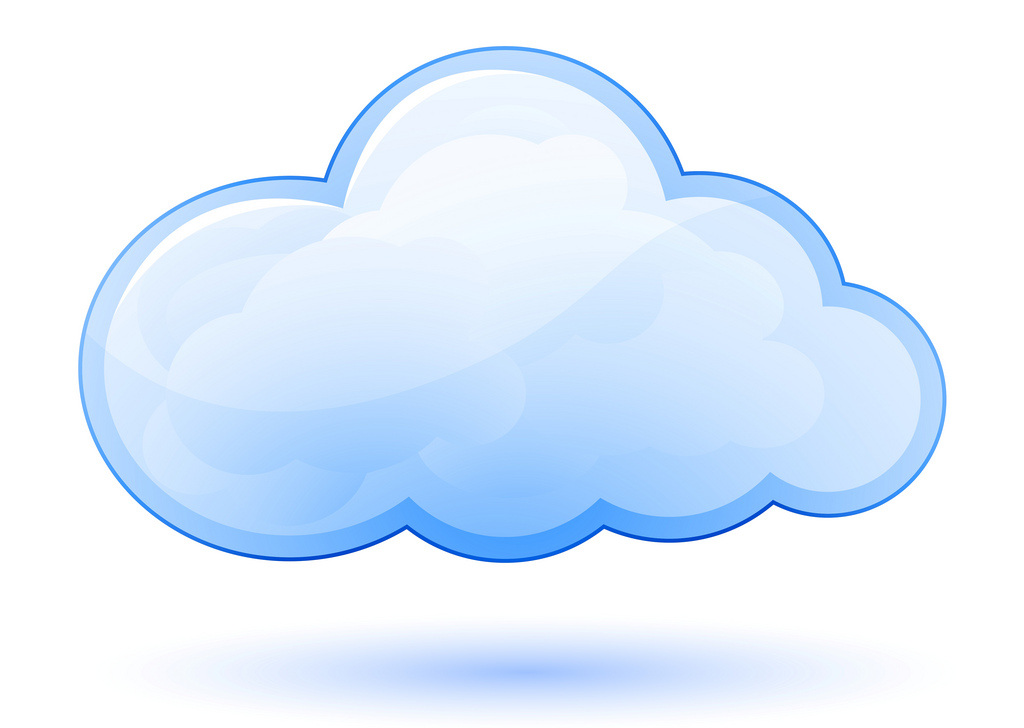The short answer is “you probably should”. In case you’re not up to date on what is the Cloud (and how it can benefit you), this article will point out all the facts. There are many good reasons to keep all your work related files in the Cloud, as well as an potential drawback you should pay attention to.
Understanding the Cloud
“The Cloud” is a recent buzz-word, and even though it gets thrown around a lot, not everyone fully understands what what it means. Truth of the matter it’s not a new technology, really… it’s just the natural evolution of network-based computing.
Simply put, a Cloud is any network of computers that avails its processing power and resources as a service to external users. When you access a Cloud, you log in to that network from another device (whether it be a smartphone, tablet, laptop, desktop computer and pretty much any other device with Wi-Fi connectivity). Through this connection, many useful possibilities can manifest: from plain remote storage to more advanced applications (such as streaming and playing a top-of-the-line video-game to a device that wouldn’t normally support it, or streaming a powerful software that’s running on another machine).
In terms of office related applications, there are various Cloud solutions available for all kinds of specifications; anything from database clients to productivity suites and technical software. A simple example is the latest Office 365 suite from Microsoft, with its native support for cloud storage and synchronization. Unlike its predecessors, Office 365 is also available as a monthly subscription service, where rather than purchase the software and download/install it to your machine, you subscribe to an account that allows connecting to the full Office package running from a network of computers that streams information to and from your computer in a secure way, especially if you have looked at using the second factor login security features that this application now has available.
Reach your Office, Anywhere
At this point in the XXI century, you probably store all your work related files in your main laptop or home desktop computer, right? Maybe you even found a way to synchronize documents automatically between both machines, so you can take your work with you when necessary. You’re already an adept of the paperless office – or perhaps your office is already totally virtual (if you’re thinking of going virtual, you can click here to see an example of the virtual office solutions on offer) – but joining the Cloud will take it to the next level.
By keeping your work related documents in the Cloud, you’ll be able to access them from any device that connects to the Internet. That means no synchronization or customizations are required: just log in from your smartphone, and you see the exact same files as if you were to log in from your desktop or tablet (or anyone else’s that you borrowed during a trip). As you can imagine, this is highly convenient and avoids the need to keep copying files back and forth between workstations, or just to rely on pen drives and other storage devices.
An example of a dedicated Cloud based storage system that you may already use and rely on is Dropbox. It’s a very convenient way to store files you need to check regularly, and it’s just the tip of the Iceberg of potential afforded by the Cloud.
Precautions when using the Cloud
While setting up your Office on the Cloud is the obvious thing to do, there are some precautions to be observed. To begin with, you should protect your accounts with a strong password that combines letters and numbers, for your chosen Cloud services (that should be common sense, really – and applies to any other important web service you rely on).
Additionally, you should keep in mind that while you can access the Cloud from anywhere in the world, and from any device (even from a borrowed smartphone) — you can only do provided you have Internet connectivity. Which means, if you’re somewhere with no Internet access, you’ll only see the latest synchronized image of your work documents.
This shouldn’t be a problem since you probably have Internet access no matter where you go, but it’s something to keep in mind for those rare occasions where you may find yourself cut off from the world wide web.
There can also be occasions where the cloud itself goes down for one or more parts of the network. This could be because of a malicious attack from an unauthorized user, a power cut in the area the cloud is hosted, or because there are many people trying to access the system at the same time. These problems are mitigated in several ways, the primary one is to make sure the cloud service you are using or hosting is robust. If you are hosting your own cloud, there are also monitoring tools such as Active Directory Monitoring to manage access and permissions to the cloud in order to improve security.
Benefits of the Cloud
To round up the case: you should know that plenty of Cloud based services are available that offer powerful and versatile solutions for managing a paperless office that you can access from anywhere, in any device. The Cloud makes it so much easier to juggle your work across different computers and gadgets, without need for physical storage or manual copying all the files and documents you need to get things done.
Moving your office to the Cloud is the natural thing to do, and chances are you’ve already started that transition without even noticing so!


